Family
The period of adolescence, which lasts approximately 11 to 21 years, is characterized by several social and emotional changes. These include labile emotions, exploring and asserting of personal identity, peer relationships, independence, self-centered attitudes, and testing rules and boundaries. The stage marks a transition from childhood to adulthood. Adolescence involves a rapid change in behaviors, identity disturbances and strong emotions.
-
-
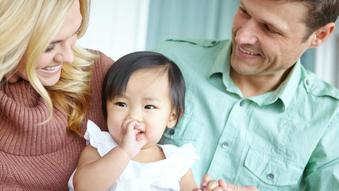
Q: How does the process of adoption work?
A:The process of adoption involves deciding if adoption is the right option, creating an adoption plan, finding a children's home or an adoptive family, contacting an adoption agency, knowing the adoptive family, getting legal help if necessary and acquiring final documentation. Adoption is a long process that demands a lot of preparation. It is vital to understand the adoption laws prior to embarking on the adoption process.
-

Q: What are the pros and cons of international adoption?
A:One advantage of international adoption is that the child is being removed from a hopeless situation to grow up in a country where the standard of living is greater. However, adoption laws in foreign countries can sometimes be very vague. As such, there may be gaps in the law, according to Wikipedia. Additionally, there are often language and cultural barriers for the child to deal with.
-

Q: How are children affected by adoption?
A:According to the U.S. Department of Health and Human Services, the process of adoption affects children in a multitude of ways, influencing their sense of identity, self-worth, self-esteem and many other social and emotional areas. Adopted children may have trouble forging meaningful, trusting relationships and may also have difficulty articulating and controlling emotions.
-

Q: Why should people consider adoption?
A:One of the best reasons to adopt is to provide a child with a stable home and caring, supportive parents. Many children put up for adoption come from bad situations or have never lived in a secure home environment. People who open their hearts and homes to such children give them a new lease on life.
-

Q: How can you trace your birth parents?
A:According to the Independent Adoption Center, the process of finding birth parents is very difficult, but there are several steps one can take. These steps include talking to the adoptive parents, contacting the adoption agency, signing up with an adoption reunion registry, asking for an original birth certificate, conducting an online search, and looking for birth certificates at the county courthouse.
-
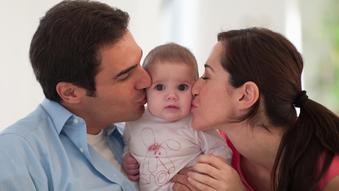
Q: What is the process for adoption?
A:Specific laws about adopting vary from state to state and depend on whether the child is adopted from foster care, a private adoption agency or an international adoption organization. Generally, the adoption process includes a formal application, a background check, a home visit, a personal evaluation, approval from the adoption agency and legal paperwork finalizing the adoption.
- See More Adoption Questions
-
-
-
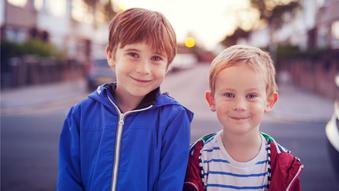
Q: What are people who share the same mother but have different fathers?
A:Children who share the same mother but different fathers are called half-siblings, or half-brother or half-sister depending on their gender. Half-siblings may also be two children who share the same father but have different mothers.
-

Q: How do you search for distant relatives?
A:Searching for distant relatives can be done through older, time-honored methods such as contacting known relatives for a family history or family tree and talking to neighbors or community members. Modern approaches, like DNA testing and making use of the wide range of research resources found on the Internet, are also effective. A comprehensive search uses both methods.
-

Q: What relation is my great-niece to my nephew?
A:Commonly a person's great-niece and nephew are father and daughter. However, they can also be uncle and niece. Technically, what people call a great-niece is actually a grand-niece. There is also a great grand-niece, which is the child of one's grand-niece or grand-nephew.
-

Q: What do you call your grandmother's brother?
A:One's grandmother's brother is usually called a great-uncle, in terms of familial relationships. Grand-uncle is another name for this kin, but the term isn't used as often.
-

Q: How is my niece's daughter related to me?
A:The daughter of one's niece or nephew is traditionally referred to as either a grand niece or great niece. Both are widely considered correct, as the child is one additional step removed from the individual in question. Similarly, the aunt of one's parent is commonly considered to be a great aunt, while the uncle of a person's parent is referred to as a great uncle.
-

Q: What are some polygenic traits?
A:Eye color is a polygenic trait. Height and skin color are also polygenic traits. If there is a vast variation in a trait, it's likely that it is polygenic.
- See More Genealogy Questions
-
-
-
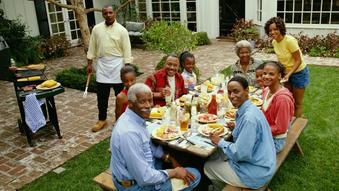
Q: What are the advantages and disadvantages of a small and big family?
A:One of the biggest advantages of having a small family is that each child receives more attention from his parents. Also, the financial costs of having a small family are less. There are both advantages and disadvantages to every family size. An advantage of having a bigger family is that children have someone to play with at home.
-

Q: Why is parental involvement important?
A:Research shows that parental involvement not only supports and encourages children's learning and development but is an accurate predictor of the child's academic success, according to Education. The National Education Association explains that children with high parental involvement have better social skills and classroom behavior as well.
-

Q: What is the meaning of family dynamics?
A:Family dynamics is the way in which members of a family interact with each other in relation to their individual goals and preferences. Although the family is a unit, people are individuals. In order for a family unit to be cohesive, all of the members must find some sort of balance between personal interests and the best interests of the unit. This is where family dynamics come into play.
-
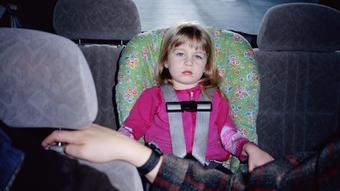
Q: How much does a child have to weigh to sit in a passenger seat?
A:There is no specific weight that allows a child to sit in the front passenger seat. Children ages 12 and under should ride properly restrained in the back seat of the vehicle.
-
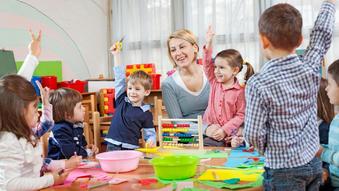
Q: What is a nursery school?
A:A nursery school is a school for children between the ages of 2 and 5 that is staffed by qualified teachers and professionals who encourage and supervise educational play rather than simply provide child care. Another common name for nursery school is preschool. From their very inception, nursery schools were designed to improve the health and welfare of children.
-

Q: What is the definition of a traditional family?
A:The definition of a traditional family is a social unit that consists of parents and children, whether living together or not. This definition is not immutable nor is it specific.
- See More Parenting Questions
-
-
-

Q: How much time do American teenagers spend on computers each day?
A:Recent data indicates that, on average, American teens spend about 2.4 hours a day online. Further survey data suggests that teens spend as many as 7.7 hours each day consuming media.
-

Q: How do you raise teenage sons?
A:Allow teens to be independent and make their own choices, so they can learn and grow, advises Modern Mom. Teen boys should be encouraged to express their emotions rather than burying them. Choose your battles when necessary, and avoid constant nagging about small issues.
-

Q: What are summer activities for teens?
A:According to Denise Witmer for About.com, summer activities for teens vary according to the types of entertainment available to families in their specific location and are usually comprised of special interests such as camping, playing sports, visiting water parks, having picnics, exploring the outdoors, volunteering, fishing and babysitting. They also include reading, having sleepovers with friends, going to county fairs, grilling out, watching movies and going to concerts.
-

Q: When do teenage girls stop growing?
A:According to KidsHealth, most girls stop growing by the age of 14 or 15. However, this varies somewhat depending upon the individual. Once a girl starts menstruating, she typically grows one or two more inches.
-

Q: What are some fun weekend activities for teenagers?
A:Teenagers enjoy fun weekend activities to hang out with their friends, sometimes involving physical activity that lets them expend lots of energy. Weekend activities involving sports or arts can help teenagers stay occupied in a healthy way without getting into trouble.
-

Q: Do curfews keep teens out of trouble?
A:According to NewsWorks, curfews do not keep teens out of trouble. There is no evidence that curfews lower the overall rate of crimes committed by teenagers.
- See More Teenagers Questions
-























